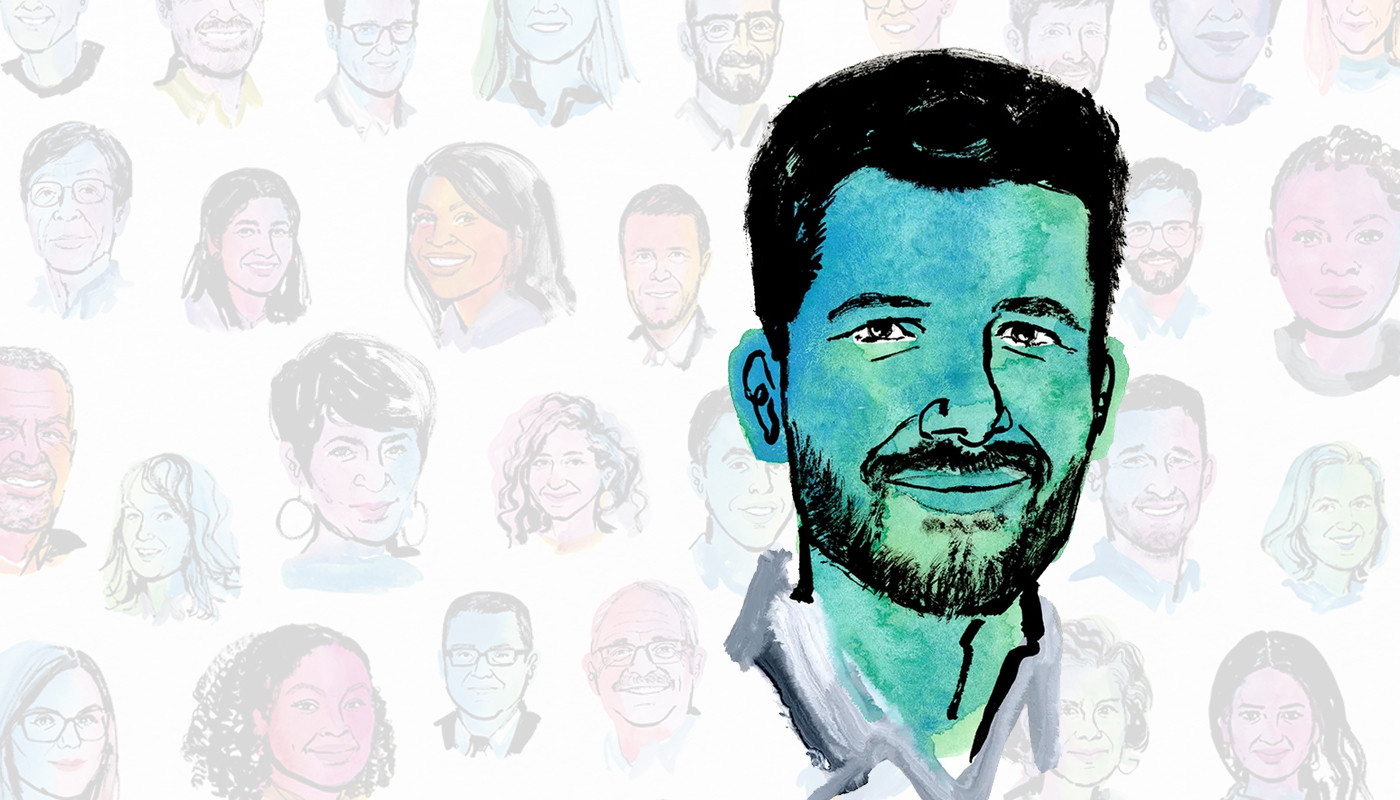
The American news portal Vox has drawn up its second list of pioneers and visionaries—scientists, researchers, authors and activists, all with the shared aim of making the world a better place, and who deserve more attention. This year’s »Future Perfect 50« list includes our President, Mahi Klosterhalfen. We are proud of this fact and consider it a compliment to our entire team.
Cages and beak trimming of hens abolished
The justification reads as follows: »There is perhaps no country making faster progress on farm animal welfare than Germany. And much of that is thanks to Mahi Klosterhalfen, president of the animal welfare nonprofit Albert Schweitzer Foundation.
[...] Klosterhalfen transformed the country’s egg industry by starting small, persuading cafeterias at universities to switch to cage-free eggs, then eventually the nation’s largest grocers, restaurant chains, food companies, and egg producers.
Under Klosterhalfen’s leadership, the Albert Schweitzer Foundation has also played a leading role in ending the gruesome practice of “beak trimming” in Germany. Each year around the world, billions of baby chicks’ beaks are seared off with a hot blade. The industry does this because otherwise, some birds may peck at and injure one another due to the stressful conditions on factory farms. Klosterhalfen learned that neighboring Austria had begun phasing out the practice in the early 2000s by first improving conditions on farms to reduce hens’ stress, which reduced pecking rates. Using that evidence, Klosterhalfen persuaded policymakers in Germany’s largest agricultural state, Lower Saxony, to ban the practice. Two years later, the country’s egg producers’ associations announced they would phase it out as well.
The Albert Schweitzer Foundation has also begun to make headway on improving conditions for factory-farmed fish, as well as chickens raised for meat.«
Animal welfare wins in Germany give cause for hope
In terms of progress in animal welfare, the writers at Vox feel that Germany has truly set itself apart on the global stage, not least because meat consumption in Germany is on the decline and plant-based alternatives are ever more widespread. Some of this is thanks to the efforts of Mahi Klosterhalfen and the Albert Schweitzer Foundation—along with Germany’s »robust ecosystem« of animal advocacy groups like ProVeg, ARIWA, Soko Tierschutz and Animal Equality. In the words of the team at Vox, the progress of the German animal protection movement should give anyone hope that a brighter future is possible.